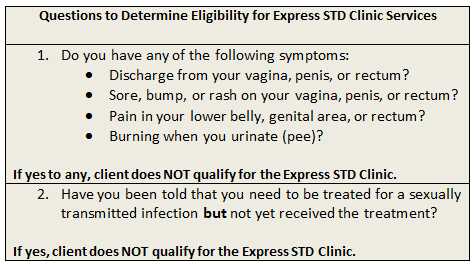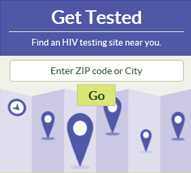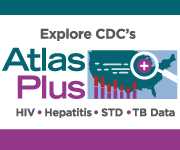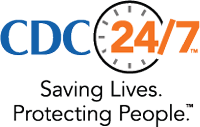PCSI Success Stories
Strengthening Collaboration and Service Integration
in Buncombe County, North Carolina
New Express STD Clinic Saves Time and Improves Efficiency in Buncombe County, North Carolina
In June 2012, with funding provided by the North Carolina Program Collaboration and Service Integration (PCSI) initiative, the Buncombe County Department of Health (BCDH) opened an Express STD Clinic to provide more patient-centered care and improve clinic efficiencies. Previously, routine STD screening involved a lengthy state-required interview, followed by a focused physical exam, and laboratory testing if needed, taking approximately two hours per patient.
Program Activity
During the initial planning phase of the PCSI cooperative agreement with the North Carolina Department of Health and Human Services, the statewide PCSI team discussed the idea of incorporating express STD clinics, which would maximize opportunities to test and treat for STDs, HIV, and hepatitis C. BCDH took on this initiative and developed a process to assess and test clients following the guidelines of an Express Clinic model. Clients were asked a series of triage questions (see Figure 1) to determine their eligibility to participate. If clients answered “no” to the triage questions, they had the opportunity to skip the long interview and clinician exam usually required and participate in the Express STD Clinic.
To evaluate the progress of these activities, the following data were collected:
- Number of clients who participated in the Express STD Clinic
- Percentage of all STD screening visits that were done at the Express STD Clinic
- Average length of time clients spent in the Express STD Clinic
- Number of positive HIV, syphilis, hepatitis C, gonorrhea, and chlamydia tests in the Express STD Clinic
A main goal for BCDH was to offer integrated services to meet clients’ needs. For example, if a female seen in the Express STD Clinic was in need of contraception and wanted to start a method that same day, she was offered the emergency contraceptive pill (if indicated) and started on her choice of contraception that same day. In addition to providing contraception at the Express STD Clinic, hepatitis A/hepatitis B, Tdap, HPV, and seasonal influenza vaccines were also offered when appropriate.
Program Successes
- 809 clients were seen at the Express STD Clinic, since opening in June 2012. Of those clients, 30 chlamydia (including 15 in males), 6 gonorrhea, 24 hepatitis C, 1 HIV, and 3 syphilis infections were detected.
- The Express STD Clinic clients made up 16.8% of all STD screening visits at BCDH.
- The average visit-time for the Express STD Clinic reduced to 47 minutes, approximately 40% of the average visit-time for a routine STD clinic visit.
- With PCSI support, BCDH was able to incorporate urine-based and extra-genital NAAT chlamydia testing for men into the Express STD Clinic. With this testing, previously unidentified chlamydia infection can now be detected and treated in men, which has the potential to reduce the burden of disease within the community.
Lessons Learned
Through participation in PCSI, BCDH staff enriched their knowledge about program planning and implementation and how to use data to drive STD screening activities and protocols. Through PCSI, BCDH was able to successfully sustain STD, HIV, and hepatitis C testing by determining how best to maximize resources through integrated services for priority clients that meet multiple needs within one visit.
Future Directions
BCDH will continue to improve its ability to capture accurate data related to the services provided and testing performed at the Express STD Clinic. Additionally, BCDH will work to improve the capacity to analyze the data; enable efficient and effective use of limited resources, specifically money and staff time; and demonstrate the value of providing expanded testing and new service delivery modalities.
BCDH’s ultimate goal is to ensure the sustainability of these non-mandated services through continued or increased funding in the agency budget or, more optimally, through expansion of free testing offered through the North Carolina State Laboratory of Public Health. The BCDH also plans to closely examine the feasibility and logistics of charging clients for non-mandated testing or extra services.
Figure 1.

For more information, please contact:
Nicole L. Beckwith, MPA
PCSI Program Coordinator Communicable Disease Branch
Division of Public Health N.C. Department of Health and Human Services
919-733-9559
Nicole.beckwith@dhhs.nc.gov
Printable PDF version of PCSI Success Story
- Page last reviewed: April 28, 2014
- Page last updated: April 28, 2014
- Content source:


 ShareCompartir
ShareCompartir


